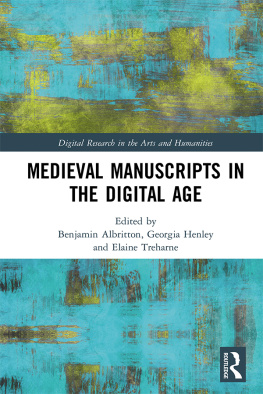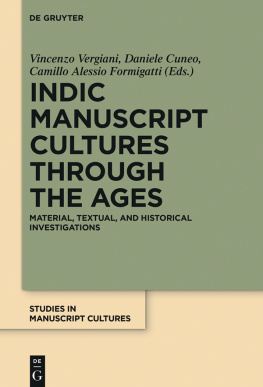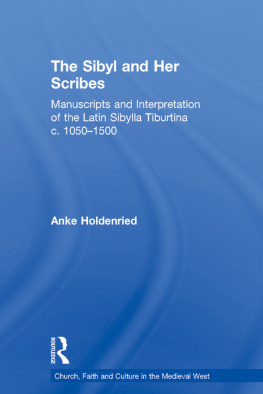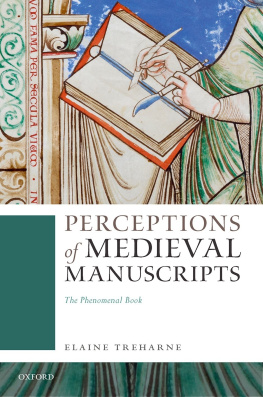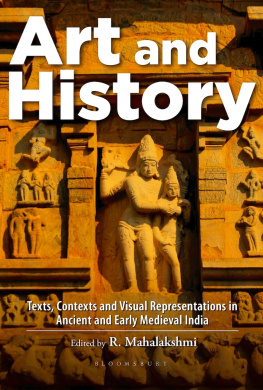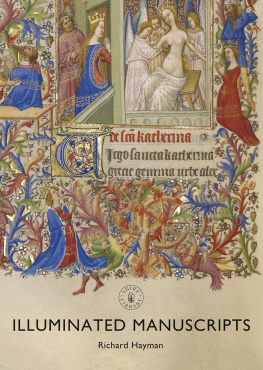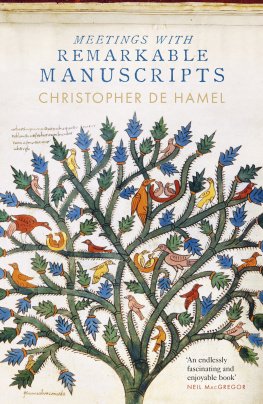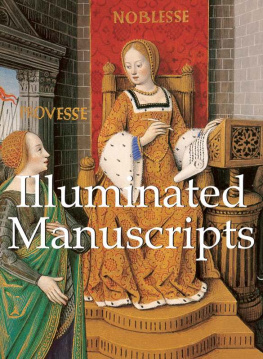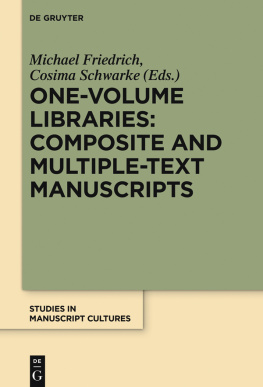Medieval Manuscripts in the Digital Age
Medieval Manuscripts in the Digital Age explores one major manuscript repositorys digital presence and poses timely questions about studying books from a temporal and spatial distance via the online environment.
Through contributions from a large group of distinguished international scholars, the volume assesses the impact of being able to access and interpret these early manuscripts in new ways. The focus on Parker on the Web, a world-class digital repository of diverse medieval manuscripts, comes as that site made its contents Open Access. Exploring the uses of digital representations of medieval texts and their contexts, contributors consider manuscripts from multiple perspectives including production, materiality, and reception. In addition, the volume explicates new interdisciplinary frameworks of analysis for the study of the relationship between texts and their physical contexts, while centring on an appreciation of the opportunities and challenges effected by the digital representation of a tangible object. Approaches extend from the codicological, palaeographical, linguistic, and cultural to considerations of reader reception, image production, and the implications of new technologies for future discoveries.
Medieval Manuscripts in the Digital Age advances the debate in manuscript studies about the role of digital and computational sources and tools. As such, the book will appeal to scholars and students working in the disciplines of Digital Humanities, Medieval Studies, Literary Studies, Library and Information Science, and Book History.
Benjamin Albritton is the Rare Books Curator at Stanford Libraries. He is a medievalist and musicologist and spent nearly a decade managing digital projects including Parker on the Web, collaborations with the Vatican Library and others, and playing a key role in the inception and development of the International Image Interoperability Framework.
Georgia Henley is Assistant Professor of English at Saint Anselm College and a Junior Fellow in the Andrew W. Mellon Society of Fellows in Critical Bibliography. Previously she held a postdoctoral appointment at Stanfords Center for Spatial and Textual Analysis.
Elaine Treharne is Roberta Bowman Denning Professor of Humanities at Stanford University, and Director of Stanford Text Technologies. She is a medievalist and handmade book expert, currently completing The Phenomenal Book. She is a Fellow of the Society of Antiquaries, of the Royal Historical Society, and of the English Association.
Digital Research in the Arts and Humanities
Series Editors: Marilyn Deegan, Lorna Hughes, Andrew Prescott, Harold Short and Ray Siemens
Digital technologies are increasingly important to arts and humanities research, expanding the horizons of research methods in all aspects of data capture, investigation, analysis, modelling, presentation and dissemination. This important series covers a wide range of disciplines with each volume focusing on a particular area, identifying the ways in which technology impacts on specific subjects. The aim is to provide an authoritative reflection of the state of the art in technology-enhanced research methods. The series is critical reading for those already engaged in the digital humanities, and of wider interest to all arts and humanities scholars.
Humans at Work in the Digital Age
Forms of Digital Textual Labor
Edited by Shawna Ross and Andrew Pilsch
Feminist War Games?
Mechanisms of War, Feminist Values, and Interventional Games
Jon Saklofske, Alyssa Arbuckle, and Jon Bath
The Power of Networks
Prospects of Historical Network Research
Edited by Florian Kerschbaumer, Linda von Keyserlingk, Martin Stark and Marten Dring
Transformative Digital Humanities
Challenges and Opportunities
Edited by Mary Balkun and Marta Deyrup
Medieval Manuscripts in the Digital Age
Edited by Benjamin Albritton, Georgia Henley and Elaine Treharne
To learn more about this series please visit: https://www.routledge.com/Digital-Research-in-the-Arts-and-Humanities/book-series/DRAH
First published 2021
by Routledge
2 Park Square, Milton Park, Abingdon, Oxon OX14 4RN
and by Routledge
52 Vanderbilt Avenue, New York, NY 10017
Routledge is an imprint of the Taylor & Francis Group, an informa business
2021 selection and editorial matter, Benjamin Albritton, Georgia Henley, and Elaine Treharne; individual chapters, the contributors
The right of Benjamin Albritton, Georgia Henley, and Elaine Treharne to be identified as the authors of the editorial material, and of the authors for their individual chapters, has been asserted in accordance with sections 77 and 78 of the Copyright, Designs and Patents Act 1988.
All rights reserved. No part of this book may be reprinted or reproduced or utilised in any form or by any electronic, mechanical, or other means, now known or hereafter invented, including photocopying and recording, or in any information storage or retrieval system, without permission in writing from the publishers.
Trademark notice: Product or corporate names may be trademarks or registered trademarks, and are used only for identification and explanation without intent to infringe.
British Library Cataloguing-in-Publication Data
A catalogue record for this book is available from the British Library
Library of Congress Cataloging-in-Publication Data
A catalog record has been requested for this book
ISBN: 978-0-367-42661-3 (hbk)
ISBN: 978-1-003-00344-1 (ebk)
Figures
Tables
Anya Adair is Assistant Professor in Law and Humanities at the University of Hong Kong. Her present research includes medieval law and literature, the history of the English language, manuscript studies, and digital humanities.
Benjamin Albritton is the Rare Books Curator at Stanford Libraries. He is a medievalist and musicologist and spent nearly a decade managing digital projects including Parker on the Web, collaborations with the Vatican Library and others, and playing a key role in the inception and development of the International Image Interoperability Framework.
Alexandra Bolintineanu is an Assistant Professor in Medieval Digital Studies at the University of Toronto. She studies Old English wonders in digital environments. Her publications address Beowulf, Andreas, Old English homilies, and illegal typewriters in Eastern Europe.
Elizabeth Boyle is Head of the Department of Early Irish at Maynooth University, Ireland. She was a postdoctoral researcher on the Parker on the Web project at Corpus Christi College, Cambridge, from 20082009.
Lindy Brady teaches in the School of History at University College Dublin and studies the multilingual and transcultural early medieval northwest Atlantic region. She previously taught in the Department of English at the University of Mississippi and is the author of Writing the Welsh Borderlands in Anglo-Saxon England (Manchester University Press, 2017).
Orietta Da Rold is a University Lecturer and Fellow at St Johns College, Cambridge University. She is a member of the Centre for Material Texts and has recently completed a book From Pulp to Fictions: Paper in Medieval England for Cambridge University Press.

